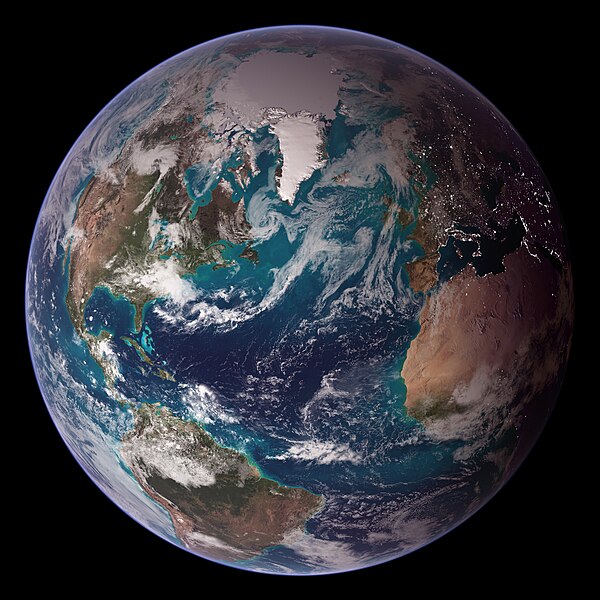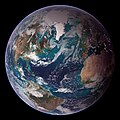ဝှာင်:Blue Marble Western Hemisphere.jpg

ဇမၞော် နမူနာ ဏအ် - ၆၀၀ × ၆၀၀ pixels အရာမသ္ဂုတ်သွာတ်လဝ်ဂမၠိုၚ်: ၂၄၀ × ၂၄၀ pixels | ၄၈၀ × ၄၈၀ pixels | ၇၆၈ × ၇၆၈ pixels | ၁၀၂၄ × ၁၀၂၄ pixels | ၂၀၄၈ × ၂၀၄၈ pixels | ၃၇၁၈ × ၃၇၁၈ pixels တၞဟ်။
ဝှာင် တမ်မူလ (၃၇၁၈ × ၃၇၁၈ pixels, file size: ၂.၆၅ MB, MIME type: image/jpeg)
ဝှာင် လၟေင်အပြံင်အလှာဲ
ဍဵု လတူ စၟတ်တ္ၚဲ/အခိင် မွဲမွဲ သွက်ဂွံ ထ္ၜးကဵု ဝှာင် မကတဵုဒှ်လဝ် ပ္ဍဲအခိင်ဂှ်၊၊
| စၟတ်တ္ၚဲ/အခိင် | ဗီုပြင်နမူနာ | ပမာဏ | ညးလွပ် | တင်ပသောင်ကလး | |
|---|---|---|---|---|---|
| လၟုဟ် | ၁၈:၂၉၊ ၅ မာတ် ၂၀၁၃ |  | ၃၇၁၈ × ၃၇၁၈ (၂.၆၅ MB) | Szczureq | User created page with UploadWizard |
ဝှာင် ဗီုဂွံစကာ
အရာမဆက်ဗက်ကၠုင် page links ကုဝှာင်ဏအ် ဂမၠိုင်ဂှ် -
ဝှာင် သွက်ဂွံသုင်စောဲ ဂလုပ်ဗဴ
ဗွဲသၟဝ်ဏအ်ဂှ် ဒှ်အရာ ဝဳကဳတၞဟ် မစကာလဝ် ဝှာင်ဏအ်၊၊
- ဗီုစကာ ပ္ဍဲ alt.wikipedia.org
- ဗီုစကာ ပ္ဍဲ av.wikipedia.org
- ဗီုစကာ ပ္ဍဲ bn.wikipedia.org
- ဗီုစကာ ပ္ဍဲ ca.wikipedia.org
- ဗီုစကာ ပ္ဍဲ ckb.wikipedia.org
- ဗီုစကာ ပ္ဍဲ cv.wikipedia.org
- ဗီုစကာ ပ္ဍဲ da.wikipedia.org
- ဗီုစကာ ပ္ဍဲ el.wikipedia.org
- ဗီုစကာ ပ္ဍဲ en.wikipedia.org
- Ecological footprint
- Space art
- User:P3Y229/sandbox
- Wikipedia:Wikipedia Signpost/2018-10-28/Gallery
- Wikipedia:Wikipedia Signpost/Single/2018-10-28
- User:Lngnbchr/TWA/Earth/2
- User:Saoirse mck/TWA/Earth/2
- User:Northamerica1000/Topics
- User:Nikola Tesla edit/TWA/Earth/2
- User:SDL87/TWA/Earth/2
- User:Mpurcell1/TWA/Earth/2
- User:Mpbrooke/TWA/Earth/2
- User:Tlonedyr
- User:JD Gale/TWA/Earth/2
- User:Theincredibleoctupus/TWA/Earth/2
- User:BigChrisKenney/TWA/Earth/2
- User:WHOW1221/TWA/Earth/2
- ဗီုစကာ ပ္ဍဲ en.wikibooks.org
- ဗီုစကာ ပ္ဍဲ en.wikiquote.org
- ဗီုစကာ ပ္ဍဲ en.wiktionary.org
- ဗီုစကာ ပ္ဍဲ es.wikipedia.org
- ဗီုစကာ ပ္ဍဲ eu.wikipedia.org
- ဗီုစကာ ပ္ဍဲ fa.wikipedia.org
- ဗီုစကာ ပ္ဍဲ fi.wikipedia.org
- ဗီုစကာ ပ္ဍဲ fr.wikipedia.org
- ဗီုစကာ ပ္ဍဲ he.wikipedia.org
- ဗီုစကာ ပ္ဍဲ hu.wikipedia.org
- ဗီုစကာ ပ္ဍဲ hy.wikipedia.org
- ဗီုစကာ ပ္ဍဲ id.wikipedia.org
- ဗီုစကာ ပ္ဍဲ it.wiktionary.org
ဗဵု more global usage ဝှာင်ဏအ်၊၊


